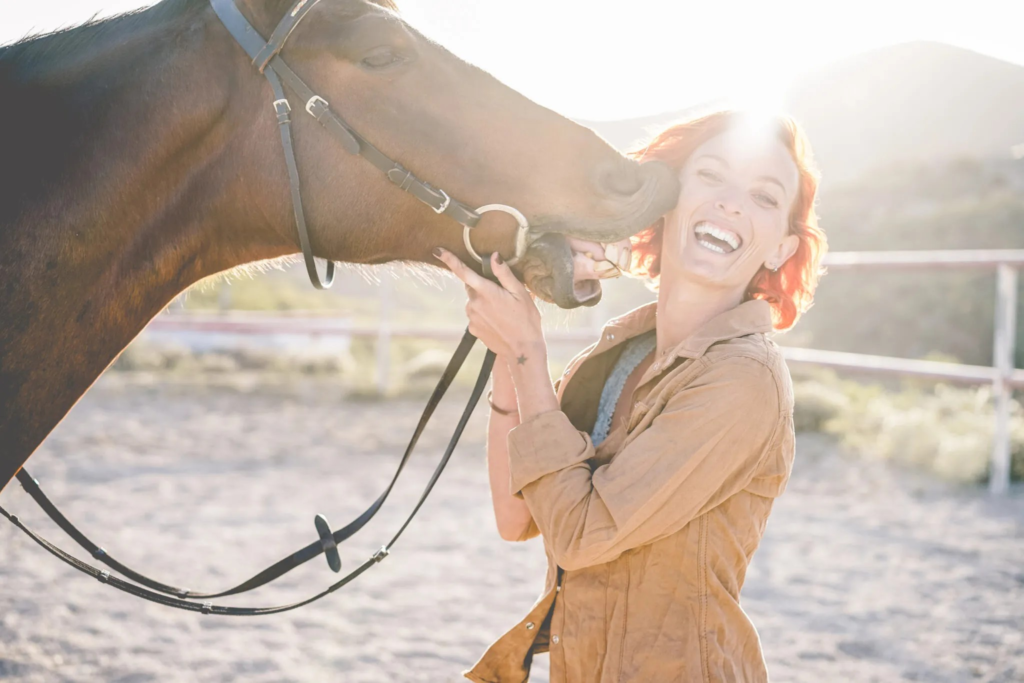Menu

As a horse person, you never stop learning from and with your horses. That's one of the things I personally love about being involved with horses. I’m constantly amazed by what my horse teaches me, the things he learns, and how our relationship continues to evolve.
In recent years, we've gained a deeper understanding of horses, especially since Rachaël Draaisma's research became accessible to us all in her book about equine language and calming signals. With this knowledge, we can better understand our horses and respond to what they’re telling us. After all, it’s not just about acquiring knowledge—it’s about putting that knowledge to use.
You might also like to read: Christina in "Shark Tank": iVet gives horse owners the vet in their pocket
When we start to better understand equine behavior and apply that knowledge constructively in our interactions, daily handling, groundwork, and riding, we have the opportunity to give our horses a voice. We can create a genuine partnership where we listen to the horse, and the horse listens to us. This understanding leads to numerous “wow moments” as we see our relationship with the horse grow. Exercises become easier. The cooperation in riding just flows. Loading the horse into the trailer might suddenly become a breeze. Wow!
And it’s not just us humans who respond with a “Wow” to this new knowledge—the horses do too. “Wow, my human listens, understands, and responds.” There’s no doubt that our horses appreciate this as well.
We experience many exciting moments with this knowledge. New doors open. We interact with our horses in ways that sometimes feel almost magical, fantastic, and delightful. But… there is a “but.” In my work, I sometimes see my students suddenly become incredibly frustrated. Occasionally, horses become so excited that we’re listening and allowing them to “talk” that they open up more and express themselves more freely. They may start sharing opinions more openly, and sometimes they express signals we haven’t yet learned to understand. This can make their behavior seem exaggerated in ways we don’t comprehend, leading to frustration.
Maybe we’re doing ground pole exercises we’ve done “a thousand times” before, and suddenly the horse refuses to step over the pole and starts stressing out. Or we’re taking the pony for a ride in the woods, and suddenly there are ghosts behind every tree, even though the pony usually doesn’t so much as flick an ear. It’s easy to get frustrated in these situations, and when we get frustrated, the horse often does too.

Frustration is not a good ingredient in the partnership with horses. Most people probably know that. What’s needed instead is calmness and patience. So, how do you achieve that when you’re utterly frustrated and feel like you can’t “reach” your horse?
One of my best tips is to focus on being curious. Try not to see it as a problem, but rather think, “Oh, interesting. I wonder what that means?” This shifts your focus away from what you perceive as a problem and signals to your horse that you’re curious and eager to listen.
Moreover, it’s essential for all good interactions with horses that you stay grounded—meaning you should be present, calm, and patient.
When you’re with a horse that’s “talking loudly,” be curious, stay calm, and appreciate that your horse values your willingness to listen.
Camilla Jacobs is the founder of HorseMama, which offers lessons, lectures, and workshops in harmonious horsemanship. Camilla is a certified Horse in Harmony Trainer under Ute Lehmann and is also the author of the children’s book “Braveheart flytter ind” (Braveheart Moves In), which focuses on horsemanship and how to interact with horses in a kind, harmonious, and safe manner.
You might also like to read: Camilla successfully opened her own horse clinic during the pandemic